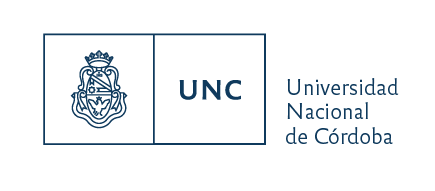| dc.contributor.author | Celayes, Pablo Gabriel | |
| dc.contributor.author | Domínguez, Martín Ariel | |
| dc.date.accessioned | 2024-07-01T17:27:47Z | |
| dc.date.available | 2024-07-01T17:27:47Z | |
| dc.date.issued | 2017 | |
| dc.identifier.uri | http://hdl.handle.net/11086/552488 | |
| dc.description | Ponencia presentada en la 16th Mexican International Conference on Artificial Intelligence. October 23 to 28, Ensenada, Baja California, Mexico. | |
| dc.description.abstract | Twitter and other social networks have become a fundamental source of information and a powerful tool to spread ideas and opinions. A crucial step in understanding the mechanisms that drive information diffusion in Twitter, is to study the influence of the social neighborhood of a user in the construction of her retweeting preferences. In particular, to what extent can the preferences of a user be predicted given the preferences of her neighborhood.We build our own sample graph of Twitter users and study the problem of pre- dicting retweets from a given user based on the retweeting behavior occurring in her second-degree social neighborhood (followed and followed-by-followed). We manage to train and evaluate user-centered binary classification models that predict retweets with an average F 1 score of 87.6%, based purely on social in- formation, that is, without analyzing the content of the tweets.For users getting low scores with such models (on a tuning dataset), we improve the results by adding features extracted from the content of tweets. To do so, we apply a Natural Language Processing (NLP) pipeline including a Twitter-specific adaptation of the Latent Dirichlet Allocation (LDA) probabilistic topic model. | en |
| dc.format.medium | Impreso | |
| dc.language.iso | eng | es |
| dc.rights | Attribution-NonCommercial-NoDerivatives 4.0 International | * |
| dc.rights.uri | http://creativecommons.org/licenses/by-nc-nd/4.0/ | * |
| dc.subject | Machine learning | en |
| dc.subject | Social networks | en |
| dc.subject | Topic modelling | en |
| dc.subject | Natural language processing | en |
| dc.title | Prediction of user retweets based on social neighborhood information and topic modelling | en |
| dc.type | conferenceObject | es |
| dc.description.fil | Fil: Celayes, Pablo Gabriel. Universidad Nacional de Córdoba. Facultad de Matemática, Astronomía, Física y Computación; Argentina. | es |
| dc.description.fil | Fil: Domínguez, Martín Ariel. Universidad Nacional de Córdoba. Facultad de Matemática, Astronomía, Física y Computación; Argentina. | es |
| dc.description.field | Otras Ciencias de la Computación e Información | |
| dc.conference.city | Ensenada, Baja California, Mexico | |
| dc.conference.country | México | |
| dc.conference.editorial | Springer Verlag | |
| dc.conference.event | Mexican International Conference on Artificial Intelligence (MICAI) | |
| dc.conference.eventcity | Ensenada, Baja California, Mexico | |
| dc.conference.eventcountry | México | |
| dc.conference.eventdate | 2017-10 | |
| dc.conference.institution | Mexican Society for Artificial Intelligence (SMIA) | |
| dc.conference.journal | Lecture Notes in Artificial Intelligence - Advances in Computational Intelligence. | |
| dc.conference.publication | Libro | |
| dc.conference.work | Artículo Completo | |
| dc.conference.type | Conferencia | |





